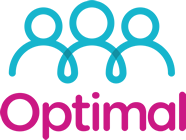| The main aim of UK Coronavirus Job Retention Scheme (also known as the furlough scheme to many) has been to protect businesses and safeguard jobs. The scheme is one of the most supportive schemes for businesses across the world and has provided welcomed financial support during one of the toughest periods in the UK economy in history. To add to this, business owners looking to bring employees back from being furloughed have been provided with extended support through further announcements from the Chancellor on the 29th June which bring much needed flexibility to the scheme and allows employers to gradually introduce employees back to the workplace over a phased period and still be eligible for financial support from the UK government.
So, what’s new? From July 1st, the scheme will enable employers to bring back furloughed employees on a part time basis. It will also see employers contributing to salaries of employees who have been furloughed from August onwards with the financial support given being lowered over a phased period until the scheme closes in October. The CJRS will also close to new entrants from the 30th June and employers will only be able to furlough employees that have previously been furloughed for a full three-week period before 30th June. A business that brings employees back to work on a part-time basis from 1st July can claim financial support for any days not worked and the 3 week minimum furlough period has also been removed from this date to provide greater flexibility to employers. When making a claim through the HMRC website for the funding, employers will able to report and claim for a minimum period of one week. The one-week period is to enable grants to be calculated accurately across working patterns. However, this is a minimum period. You can claim for longer periods such as two weeks or a month if you wish. In terms of workers returning part time there is no restriction on the number of hours an employer decide the employee should return to work on, so consideration should be given to how much work is available and the organisations ability to pay wages for staff returning. If an employee is unable to return to work, or the business does not have enough work, then employees can remain furloughed and employers can continue to claim the grant for the full hours under the existing rules. How tapering of the scheme will work From August 2020, the CJRS scheme will be slowly reduced to reflect businesses bringing employees back to the workplace. The scheme updates mean that the following will apply for the period people are furloughed:
HMRC will require employers to submit data on the contracted working hours for an employee and actual hours worked. It will also be important to communicate and state in writing to employees so that they agree and understand what they will be paid. This should prevent an unwelcome and unwarranted audit by HMRC. There will be a further update and guidance and how to calculate claims on the 12th June. Optimal People & Business Services provides HR advice and support to businesses across the UK. Whether you require general advice or more strategic support to look at bringing workers back, restructuring your business or making redundancies then we can help. For a confidential discussion please call us on 01422 897152 or email enquiries@optimal-hr.co.uk |



